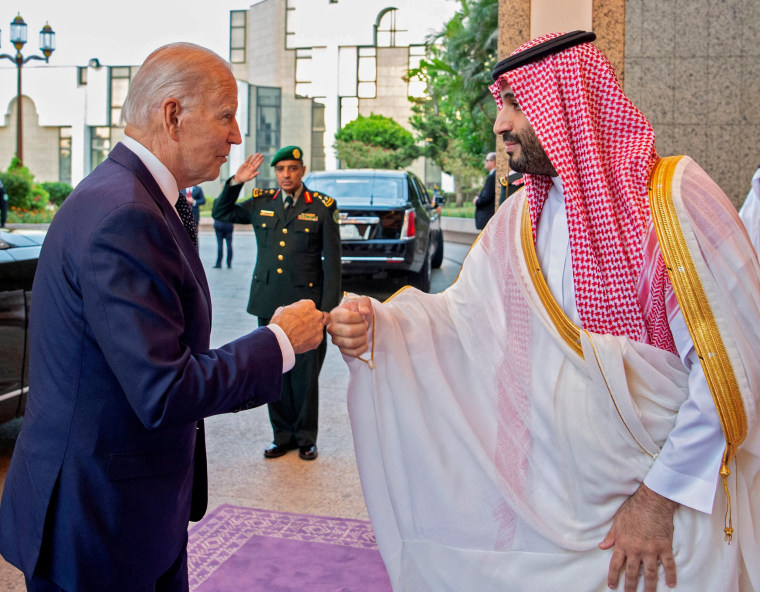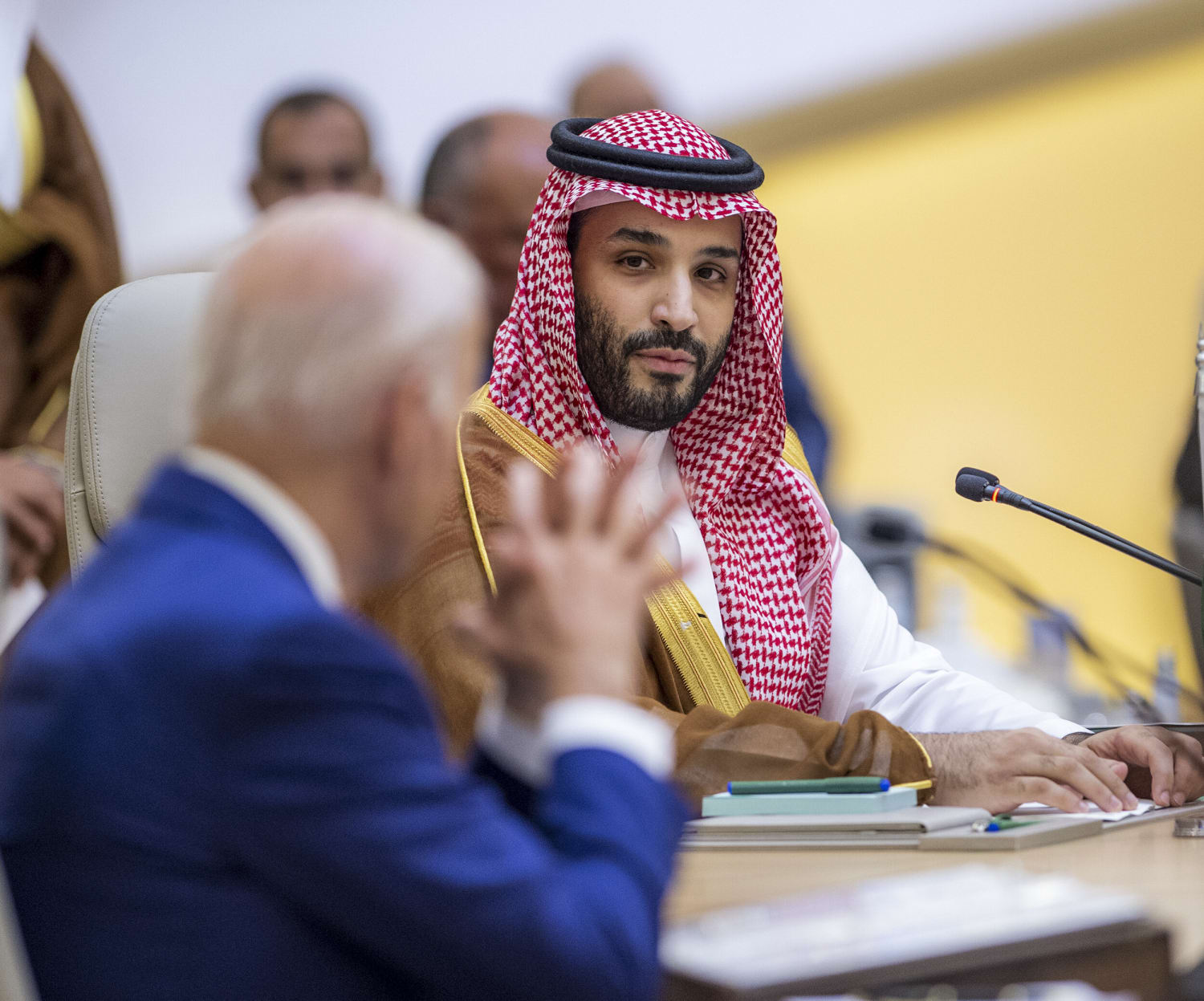Saudi Arabia has suggested the United States asked it to wait a month before cutting oil production, defending a move heavily criticized by the White House as helping Russia’s war in Ukraine.
Such a delay in the OPEC+ supply reduction could have staved off price rises at American pumps until after the midterm elections, though the Saudi foreign ministry did not specifically mention the midterms in its lengthy and terse statement late Wednesday.
Rising fuel costs are a key driver of inflation, which shows no sign of slowing down and hit 8.2% in September to remain top of mind for many Americans as Democrats hope to hold on to their slim majority in Congress.
The White House pushed back against any suggestion that it made a politically motivated request, with National Security Council spokesperson Adrienne Watson saying in a statement early Friday that it was “categorically false to connect this to U.S. elections.”
“It’s always been about the impact on the global economy and impact on families at home and around the world, especially as Putin wages his war against Ukraine,” she added.
It’s the latest exchange to punctuate a delicate relationship between Washington and Riyadh, with President Joe Biden initially calling the kingdom a “pariah” before traveling to the kingdom this summer to fist-bump Crown Prince Mohammed Bin Salman in a much-criticized overture to increase global oil production.

As the de facto head of OPEC+, Saudi Arabia rejected that appeal, with the alliance instead announcing earlier this week it would be cutting global supply by 2 million barrels. That drew heavy criticism from Biden and other Democrats, who saw it as siding with the Kremlin. Russia is an OPEC+ member and as an an oil-exporting giant would benefit from rising prices.
Some Democrats suggested the U.S. reevaluate its entire relationship with the kingdom, with Biden vowing “consequences” for a decision many viewed as a boon to President Vladimir Putin.
On Thursday, Saudi Arabia hit back, releasing a long, pointed statement in which it rejected suggestions the cut was “politically motivated,” saying the decision was reached by consensus and made to “protect the global economy from oil-market volatility.”
It said “attempts to distort the facts” were “unfortunate.”
The kingdom had “clarified through its continuous consultation with the U.S. administration that all economic analyses indicate that postponing the OPEC+ decision for a month, according to what has been suggested, would have had negative economic consequences,” the statement added.
The Wall Street Journal, citing anonymous sources, first reported earlier this week that the U.S. requested a delay.
“It seems this is not about Russia but instead about the U.S. midterm elections,” Mohammed Alyahya, a fellow at the Belfer Center’s Middle East Initiative, at the Harvard Kennedy School, told NBC News. “The expectation that Saudi Arabia must manipulate global energy markets to influence domestic U.S. politics is absurd.”
That link was flatly rejected by the White House, which suggested some OPEC countries privately opposed the move.
“We presented Saudi Arabia with economic data in order for them to wait and understand the markets before making this shortsighted decision,” said Watson, the National Security Council spokesperson.
John Kirby, National Security Council coordinator for strategic communications, said that Saudi Arabia was trying to “spin and deflect” on the issue.
“We presented Saudi Arabia with analysis to show that there was no market basis to cut production targets, and that they could easily wait for the next OPEC meeting to see how things developed,” he said in a statement. “Other OPEC nations communicated to us privately that they also disagreed with the Saudi decision, but felt coerced to support Saudi’s direction.”
Like many Western governments, Washington has long sought to balance reliance on Saudi Arabia, the world’s second largest oil producer, with holding it to account on human rights.
Bin Salman’s supporters say he has modernized the kingdom, diversifying its reliance on exporting fossil fuels, allowing women to drive and opening up movie theaters for the first time in decades. But human rights groups say that if anything the country has entrenched its position as one of the world’s worst human rights abusers, a brutal theocracy that oppresses political dissent, women and the LGBTQ+ community.
Alongside this, MBS, as he is known, has sought to burnish his kingdom’s image abroad by investing in and hosting Western sports and entertainment, while attempting diplomatic overtures such as his hosting of Biden this summer.
The Saudis say the decision to cut oil supply was about stabilizing the global market, but the U.S. sees it as OPEC+ effectively siding with Russia. As the Kremlin suffers heavy losses of troops and territory, it has been accused of using energy as a weapon against Europe — which has long relied on Moscow’s fossil fuels — and the wider world, which is dealing with inflation partly sparked by the war.
Reuters contributed.
Source: | This article originally belongs to Nbcnews.com












